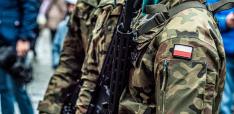The Vicious Cycle of Pitiless Violence

ISIS fighters must be held to account as criminals, not conventional military adversaries, for their violent crimes. Snared by geopolitical interests, post-9/11 interventions have too easily been captured by leading states.
here has been carnage over the last few days in Beirut, Baghdad, Paris and Bamako and, of course, there have been numerous such attacks before these and, no doubt, numerous more to come. To understand something of why, it is important to start with the terrorist atrocities on 9/11, when hijacked jets crashed into the World Trade Centre and into one side of the Pentagon.
On Sunday, September 23, 2001, 12 days after 9/11, the novelist Barbara Kingsolver wrote something remarkable in The Los Angeles Times, a passage I have come back to many times:
‘It’s the worst thing that’s happened, but only this week. Two years ago, an earthquake in Turkey killed 17,000 people in a day, babies and mothers and businessmen…. The November before that, a hurricane hit Honduras and Nicaragua and killed even more…. Which end of the world shall we talk about? Sixty years ago, Japanese airplanes bombed Navy boys who were sleeping on ships in gentle Pacific waters. Three and a half years later, American planes bombed a plaza in Japan where men and women were going to work, where schoolchildren were playing, and more humans died at once than anyone thought possible. Seventy thousand in a minute. Imagine….
There are no worst days, it seems. Ten years ago, early on a January morning, bombs rained down from the sky and caused great buildings in the city of Baghdad to fall down – hotels, hospitals, palaces, buildings with mothers and soldiers inside – and here in the place I want to love best, I had to watch people cheering about it. In Baghdad, survivors shook their fists at the sky and said the word “evil”. When many lives are lost all at once, people gather together and say words like “heinous” and “honor” and “revenge”…. They raise up their compatriots’ lives to a sacred place – we do this, all of us who are human – thinking our own citizens to be more worthy of grief and less willingly risked than lives on other soil.’ (2001)
This is an unsettling and challenging passage. When I first read it, I felt angered and unsympathetic to its call to think systematically about 9/11 in the context of other disasters, acts of aggression and wars. It makes uncomfortable reading precisely because it invites the reader to step outside of the maelstrom of 9/11 and other terrorist atrocities and put those events in a wider historical and evaluative framework. Uncomfortable as this request is, we have to accept it if we are to find a satisfactory way of making sense of them.
If 9/11 was not a defining moment in human history, it certainly was for today’s generations. The terrorist violence was an atrocity of extraordinary proportions. It was a crime against America and against humanity; a massive breach of many of the core codes of international law; and an attack on the fundamental principles of freedom, democracy, justice and humanity itself, i.e. those principles which affirm the sanctity of life, the importance of self-determination and of equal rights and liberty.
After 9/11, the US and its allies could have decided that the most important things to do were to strengthen international law in the face of global terrorist threats, and to enhance the role of multilateral institutions. They could have decided it was important that no single group or power should act as judge, jury and executioner. They could have decided that global hotspots like the Middle East which feed global terrorism should be the core priority, and that all key parties need to be involved in a sustained dialogue (including Russia, Iran and other regional players). They could have decided that the disjuncture between economic globalization and social justice needed more urgent attention, and they could have decided to be tough on terrorism and tough on the conditions which lead some people to imagine that Al-Qaeda, ISIS and other similar groups are agents of justice in the modern world. But they have systematically failed to pursue any of these things. In general, the world after 9/11 has become more polarized and international law, weaker.
Failure: a vicious cycle
There is a call again, and again, to arms. The events in Paris, and Hollande’s response, can be placed in this context. Enter the war in Afghanistan, in Iraq, in Libya, in Syria, in Iraq again. We are in a vicious cycle of violence. President Hollande’s statement, following the Paris atrocities that “we are going to lead a pitiless war” could have been applied to any one of these post-9/11 conflicts. He calls for, what is in effect, an extension of previous policies that have failed in almost every one of their objectives.
In recent weeks, there has been much commentary, in the press and social media, about the consequences of the failed post-9/11 wars and military interventions, renewed by the rise of the self-proclaimed Islamic State. Commentators note with alarm the spread of ISIS across Northern Syria, large swathes of Iraq, parts of Libya and other countries with copycat armed groups. The beheading of 21 Coptic Christians in Libya and 45 people burned to death in Iraq, for example, inevitably raise the loudest possible alarm; the grotesqueness of the events only matched by the brazenness of the executioners’ celebrations. There is a call again, and again, to arms. The events in Paris, and Hollande’s response, can be placed in this context.
Some blame the failure to stabilise Afghanistan after 2001 on the start of the war in Iraq in 2003. Some blame the failure of the war in Iraq on a lack of adequate planning and a failure to follow through. Some blame the failure of intervention in Libya on reluctance to put “boots on the ground” due to the widespread war fatigue that followed Afghanistan and Iraq. Some people blame the chaos in Syria on the ad hoc arming of rebel groups and an unwillingness (at least up until now) to intervene more directly. The point being that all these wars might have succeeded if only the tactics had been better, the strategy sharper, and post-conflict reconstruction more clearly defined.
The truth is, however, that these wars were misconceived from the outset and have created a calamitous geopolitical failure from which very few lessons have been learned. The wars have also created a vast power vacuum as postcolonial regimes were toppled with no viable strategy for what comes next.
Into this vacuum stepped armed groups who have sought to shore up power like postmodern medieval warlords and warring barons. The result has been a calamitous orgy of violence linked to social media for the widest possible impact in the search for territory, resources and power. The claims to religious justification cannot disguise the barbaric cruelty of the actions.
At what cost?
The wars were led by people that had no understanding of the countries they were fighting in… and no plan for once the fighting had begun. The 9/11 wars were governed by a belief that despots could be toppled and replaced by accountable or, better still, democratic regimes as a result of short demonstrations of awesome American military power, with some allies in-tow. The wars were led by people that had no understanding of the countries they were fighting in, no grasp of the culture or language, no sense of the politics and the peoples, no account of local interests and divisions, and no plan for once the fighting had begun. These wars were led by men who, at best, were gripped by the belief they had the ability to reshape other countries in their own image.
Such a mind-set might be conceived as a benign deployment of a colonial imaginary put to the service of reconstructing other societies through armed conflict in the interest of repressed peoples. But there is a less benign interpretation, of course, that such a position veils the prosecution of war fought out for resources (oil), revenge, and, at times, for a Christian god. This is less a benevolent colonial imaginary than, perhaps, the return of a crusading mind-set.
While some may claim that the 9/11 wars rolled back Al-Qaeda, prevented a massacre in Benghazi and rid Assad of chemical weapons, at what cost? The advances have not been sustained: terrorism continues to flourish, arms abound, open markets for slaves have developed, and massacres are widespread. The scale of the death toll and displacements of people have become difficult to grasp, and the destruction of infrastructure evokes images of Armageddon. By this standard, war after war has failed.
The evolution of citizenship
The 9/11 wars were conceived against the tide of history. There are only few historical instances of democracies being borne out of war (e.g. Italy, Germany, Austria and Japan in the aftermath of WWII). But this should hardly be a surprise. Democracies depend on the most subtle cultural conditions in which people can separate the values of citizenship from sectarian, ethnic, tribal and other forms of identity politics. This shift took centuries in the west and came about through centuries of struggle, debate and the slow entrenchment of that most universal of ideas – citizenship, as a trump for other forms of particular political claims.
The 9/11 wars sought to circumscribe these processes and, instead of democracy, produced the vacuum into which sectarian and tribal identities could flourish. This was a negation of history and a negation of all that should have been learnt about how liberal and democratic cultures evolve in delicate and slow trajectories. But these lessons have been learnt too late and at too high a price. Presumption against war and intervention must be the starting point.
Given the current crises in the Middle East and North Africa (and of course, one might add Ukraine), we must ask if lessons have been learnt from the series of post-9/11 failures. In Europe David Cameron still speaks of the war in Libya as necessary and justified, and now of the necessity and justification of extending a bombing campaign to Syria. Obama is more explicitly reticent on the prospect of direct military engagement on the scale deployed in Libya, instead emphasising long term strategies to combat terrorism – in the form of development and self-determination (supported, in part, by arming and training local actors such as the Kurds), while using airstrikes to slow down the advance of groups like ISIS. At the same time, he is aware of what one might call the dilemma of violence whereby a military operation may be urgently needed, but runs the risk, in aggregate, of reinforcing the cycle of violence.
But these lessons have been learnt too late and at too high a price. Presumption against war and intervention must be the starting point. We have overwhelming evidence of the failure of war as a contemporary vehicle for the promotion of good governance: freedom cannot be achieved through war and organised violence, and a lasting peace can only be won through the consent and act of participation of the many. Just as there must be a presumption against war, there must a presumption in favour of nurturing sites of citizenship values, with a commitment to building intermediate institutions such as a free press and access to social media, as well as nurturing civil society, with the aim to lay down the roots of a culture of self-determination and curtailment of the use of arbitrary power.
Unresolved issues
There remain many unresolved issues about how to proceed faced with ISIS, Boko Haram, or despotic and repressive states, with civilians frequently caught in the crossfire.
After the Mumbai attacks of 2008, which left 164 people dead, the government in India did not rush to war. As Vijay Prashad has aptly noted, the Indian government opened an “investigation into the attack and unravelled the plot and its execution. Diplomatic discussions opened with Pakistan, which is accused by India of harbouring the planners of the attack. The file remains open. Patience is the order of the day. No hasty missile strike could make up for the attack in Mumbai. It would only have escalated the conflict further and drawn India and Pakistan into an intolerable war. It is far better to pursue the case prudently.”
In the short-term, ISIS must be checked by cutting off economic resources that feed their activity via tough sanctions; by confronting Saudi Arabia and the Gulf monarchies whose funds have supported and enhanced these violent networks. Today, we all know the challenge of ISIS and other such groups does not have straightforward solutions. In the short-term, ISIS must be checked by cutting off economic resources that feed their activity via tough sanctions; by confronting Saudi Arabia and the Gulf monarchies whose funds have supported and enhanced these violent networks; by stemming their access to arms from many of the same countries (as well as from captured US supplies to moderate Muslim groups); by putting pressure on Turkey’s rulers to put aside domestic considerations and to stop attacking the Kurds; by involving all leading global and regional powers in strategic conversations about how to curb and stop ISIS, and to create a foundation for a new political settlement in the region; and by holding ISIS fighters to account as criminals, not conventional military adversaries, for their violent crimes within a framework of law and law enforcement. In the current period, this can only be done by a mixture of national and regional military arrangements. But herein lies a difficulty.
A robust law enforcement process that upholds impartial norms would need to draw on military and policing assets that serve as enforcers of law, not as agents of geopolitical interests. An enforcement capacity of this kind only exists today in embryo and in an uneven manner, and there are no institutions that can impartially apply frameworks like the Responsibility to Protect Doctrine. Snared by geopolitical interests, post-9/11 interventions have too easily been captured by leading states. Building a robust law enforcement process is a long-term process and, yet, it is paradoxically a requirement of legitimate and effective short-term solutions.
The new resolution at the UN (resolution 2249) goes some way towards creating a legal framework for intervention against ISIS. Yet it falls short in crucial respects. While it calls on all nations to redouble and coordinate their efforts by “all necessary means” to prevent and suppress terrorist acts committed by ISIS, it does not specify what these means are, and leaves the scale and scope of military action unspecified and in question. It also falls well short of generating a robust law and law enforcement framework which would allow the pursuit of criminal terrorists and the capacities to bring them to account. Instead, it provides an impetus for the intensification of conflict yet again. Instead, the new resolution at the UN (resolution 2249)… provides an impetus for the intensification of conflict yet again. Few lessons seem to have been learnt from the failures of the post-9/11 wars to date.
The intensity of the range of responses to the atrocities of 9/11, Beirut and Paris is fully understandable. There cannot be many people in the world who do not experience shock, revulsion, horror, anger and a desire for vengeance, as the Kingsolver passage acknowledges. This emotional range is perfectly natural within the context of the immediate events. But it cannot be the basis for a more considered and wise response.
The fight against terror must be put on a new footing. Terrorists must be bought to heel and those who protect and nurture them must be bought to account. Zero tolerance is fully justified in these circumstances. Terrorism does negate our most elementary and cherished principles and values. But any defensible, justifiable and sustainable response to terrorism must be consistent with our founding principles and the aspirations of international society for security, law, and the impartial administration of justice – aspirations painfully articulated after the Holocaust and the Second World War – and embedded, albeit imperfectly, in regional and global law and the institutions of global governance.
The framers of these institutional arrangements affirmed the importance of universal principles, human rights, and the rule of law when there were strong temptations to simply put up the shutters and defend the decision of some nations and countries only. The response to terrorism could follow in the footsteps of these achievements and strengthen our multilateral institutions and international legal arrangements; or, it could take us further away from the fragile gains towards a world of further antagonisms and divisions – a distinctively uncivil world. At the time of writing the signs are not good, but we have not yet run out of choices.
This article is based on a talk David Held gave on Monday November 23, 2015 as part of a Durham Castle Lecture Series special event on Paris: Terrorism and After. This article first appered on OpenDemocracy.


